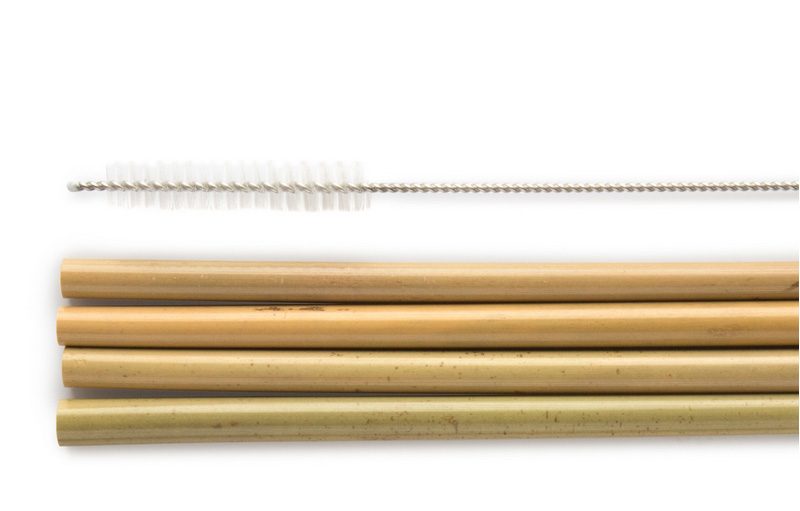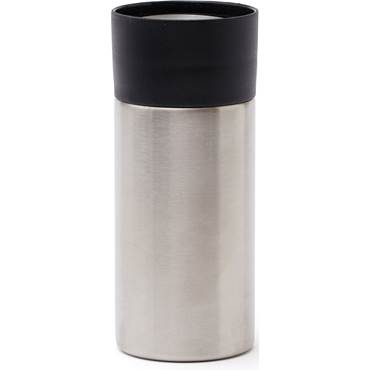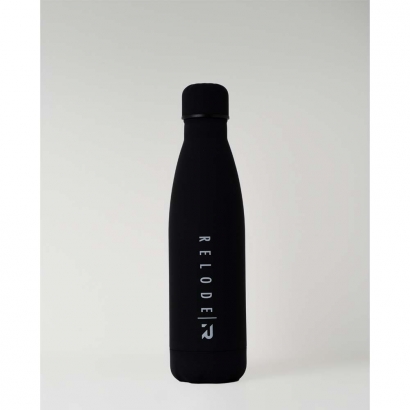Recycling plastic is great. But stopping the cycle and the plastic waste before it starts is even better.
Disposable items have become a big part of our everyday life, so much so that we often don't even think about how much money we spend on them or how much they contribute to landfills. Fortunately, many of them can be easily replaced with significantly longer life products that are not built for single use but for reuse. Some of the following things you can do yourself and others you may need to buy but don't worry - we looked into it and found the best solutions:
1. Plastic straws
They are a huge nuisance on our beaches and are a common death trap for marine life (especially turtles). It is estimated that approximately 8.3 billion straws today pollute the world's beaches and that every day 8 million pieces of plastic end up in our oceans. It's high time to review your plastic consumption and invest in plastic-free alternatives, such as stainless steel straws, bamboo, pasta or rice straws (yes, you read that right – rice!). For those who like the flexibility of plastic tubes, there are other eco-friendly options, including paper tubes, reusable silicone tubes, and compostable plant-based straws. Or best of all – and when possible, choose to go straw-free! Take a look, for example, at: Humble Brush Bamboo Straw.
2. Cotton pads and tops
Did you know that 1.5 billion cotton tops are produced every day and that each person uses an average of 415 tops per year? Unfortunately, many of these end up in our oceans. Once the cotton has dissolved, all that is left is a stiff plastic stick that is easily ingested by birds, fish and other animals. There are many alternatives to the cotton tips, such as liquid ear wash products, tips made from bamboo instead of plastic, cotton pads made from organic cotton or reusable silicone tips. These can be used both to dry the ears and for make-up. For example, look at LastRound reusable makeup remover pads.
3. Take-away coffee mugs
The billions of (mostly non-recyclable) takeaway coffee mugs we consume each year are well documented. Half a trillion disposable cups are produced annually around the world; that's over 70 disposable cups for every person on the planet. Very little recycled paper is used to make disposable cups due to concerns about health risks. Considering the huge environmental impact they have and how easy it is to change, there's no excuse not to bring your own reusable mug! And if you buy a takeaway coffee and can't use your reusable cup, say no to the plastic lid! For example, look at Otis Thermo To-G0 Mug.
4. Plastic bottles
There is really no benefit to buying your water in plastic. The cost, the waste, the resources required to make the bottle, chemicals – the list goes on. Have you considered that bottled water companies don't actually produce water without plastic bottles? With this in mind, choosing a reusable option becomes easier. Buy a reusable water bottle! It will quickly become your most valued friend to have with you on the day. Take a look , for example, at the Relode Metal Water Bottle.
5. Plastic cutlery
Eating out and bringing take-away often involves more than just food. Plastic cutlery and plastic bags are often included in your order. Next time you order take-away, make a special request to opt out and say no to the extra plastic. Switch to reusable bamboo utensils, a travel cutlery that you can take with you wherever you go or bring your own from home! Chopsticks are also a good option to have in your bag if you plan to bring food with you. Look i.a. here: Bamboo Cutlery Set!
6. Plastic boxes
Globally, over 78 million tonnes of plastic packaging is produced each year and it is estimated that plastic production will increase by 40% until 2030. The packaging industry is the largest converter of plastic and many of these are used only once for food packaging, bags and drink bottles. Choose nature-friendly take-away! Most eateries will be happy to put food directly into your own reusable lunch box if you ask. Some options for containers include glass containers, stainless steel lunch boxes, and glass jars. You can also shop at large grocery stores and bring your own containers to fill. If you eat out, why not ask your favorite stores to switch to compostable and eco-friendly options? For food boxes, take a look at these: Mepal reusable food containers!
7. Napkins
If you use paper napkins at every meal, many napkins end up in the trash. Make or buy cloth napkins instead! You can even have napkins monogrammed or otherwise customize napkins for different family members. For example, look at Hildebrandt Sustainable Napkins.









